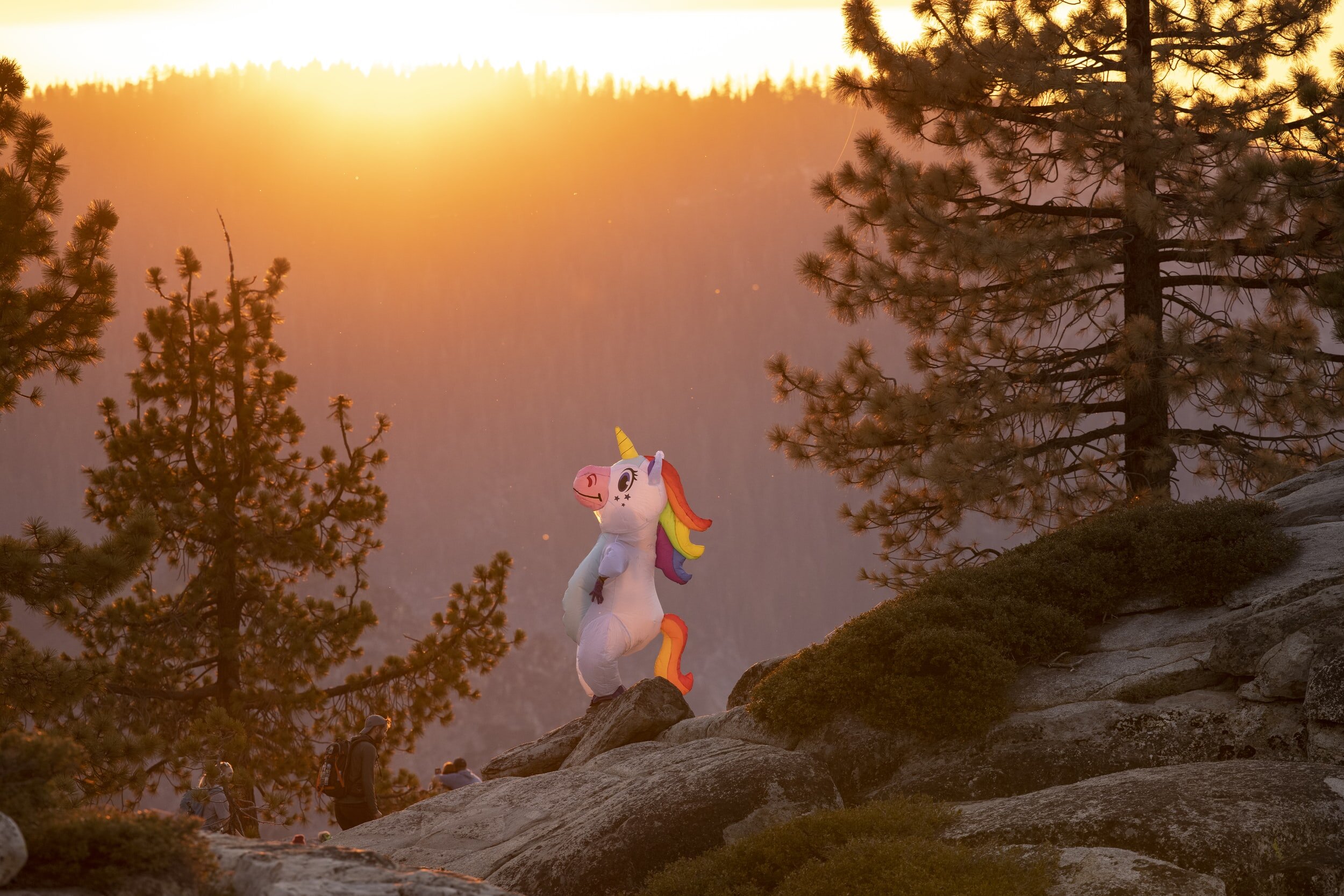Busting Internalized Homophobia
To keep it simple, internalized homophobia is when queer folks take the negative cultural messages about queerness and turn it into self-hatred and shame. Unfortunately, we’re all dealing with internalized homophobia to some degree because we’re all inundated with heteronormative messaging from birth. Internalized homophobia can show up as a range of different experiences depending on the person and their circumstances. General rule of thumb, keeping in mind this does vary, folks who grew up in either religious or conservative communities seeped with anti-LGBTQIA+ sentiments will have more significant experiences of internalized homophobia. The good news is that with loving support and education, we can overcome a lot of these toxic beliefs and come to fully accept ourselves and each other. I’d love to dive into some common manifestations of internalized homophobia and give y’all reframing tools to start the healing process:
Fear of coming out/ denying attractions
The most common manifestation of internalized homophobia is denying our own queerness. Lots of people were taught that homosexuality and gender non-conformity are unnatural, wrong, or sinful (of course this is untrue) leading them to hide or repress those feelings. Many institutions teach that it's better to live in denial and discomfort than to identify as queer, and those messages can stick. Shame is a powerful weapon for social control, and making queer folks feel like they are fundamentally bad keeps us stuck and unable to assert ourselves. Many of us go through periods of fear, anguish, and self-hatred as we struggle to understand our gender and sexuality. It's common for folks to wish they were just straight or cisgender. Many go so far as to ignore their attractions and identity altogether, settling for a normative life rather than facing the fallout of being themselves. Others hide their queer relationships leaving their partners de-prioritized, neglected, and invalidated.
Here's the thing, you are perfect the way you are. The people who need to change are cishet folks who have absolutely nothing to lose by letting go of their attachments to oppressive systems. Those who insist that you must hide yourself to appease their own sense of stability are neither loving nor allies. The prospect of losing friends, family, and community after coming out is terrifying. However, the harsh truth is, you deserve better than people who only love a fabricated version of you. Your partners also deserve recognition. Standing up for who you are takes a big pair of labia but it will always be worth it in the end. Oppressive systems continue to exist when we diminish ourselves to appease the status quo.
Placating straights
Another version of internalized homophobia is trying to be inoffensive to cishet people in the hope of gaining acceptance. Homonormativity is the process of replicating the same social norms and hierarchies we see in the dominant culture. Many queer folks feel pressured to minimize their queerness, to be straight-passing, to conform to gender norms, and to mirror heterosexual relationships. Homonormativity is hammered into us by the media that only depicts gender normative, white, able-bodied, middle-class, married, and gay couples and deliberately erases the diversity of our community. It's important to clarify that homonormativity is just as oppressive as any other anti-queer social norms. When we allow cishet people to dominate and co-opt queer narratives, acceptance becomes conditional on us meeting irrelevant and unrealistic standards. We see lots of queer folks fall into this trap, it can show as beliefs that they must couple with only one partner in a long-term committed relationship. It can show up as hiding or minimizing your trans identities in front of cishet folks. Insisting that you're not one of the "flamboyant" gays. Or even buying into the myth that masc-presenting folks must pair up with femme presenting folks to closely mirror normative gender ideals.
Queerness is not for cis-heterosexual consumption. Our lives do not need to fit a narrow, standardized definition to warrant respect. Again, cishet folks who set the bar and tell us to jump are not allies. They have work to do on themselves, not the other way around. The best thing you can do is continue to validate your own queerness and the range of expressions and experiences of those around you. Flamboyant queers are valid, so are shy queers, so are polyam queers, so are gender non-conforming queers, so are butch 4 butch queers, so are lipstick lesbians, and so are all the folks living their authentic lives. It's not our job or responsibility to be acceptable to people who hold rigid standards that will always keep us down.
Gatekeeping and criticizing other queers
Unfortunately, there's a grain of truth to the saying "hurt people hurt people," and the queer community has endured its fair share of trauma and pain. I wish that negative experiences would turn to solidarity and compassion, however, that's not always the case. Many queers who are struggling with their internalized homophobia turn against other queer folks who they believe are unacceptable for whatever reason, you can always make up justifications for hate. This does a great disservice to our community by turning us against each other rather than forming stronger bonds. It's important to recognize that hierarchies hurt us and form the backbone of our oppression systems (patriarchy, white supremacy, capitalism, etc), and replicating them within our communities has the same effect. The way to reduce our hurt and anguish is not to pass it on to others. Many people who are struggling with their sexuality and gender however go for easy targets, people. who they perceive as having less power than them.
Instead of punching down, it's useful to use hurt as a motivator to stop those situations from being replicated. The best thing you can do is heal yourself, so you aren't passing on pain. Being ashamed of who you are is horrible, I speak from experience. Queer folks have it hard enough without being attacked within the community. I challenge each of you reading this to take responsibility and not to make other queer's life harder. When we feel small and insignificant, we can choose to support others and seek mutual validation. Breaking cycles of exclusion, gatekeeping, and criticism is hard but necessary if we ever hope for social progress.
Anxiety about sexually pleasing partners
Regardless of sexual orientation, most of us feel a degree of fear about pleasing our partners sexually and blame that on our sex-negative culture. But queers do face another significant issue, we're taught that what counts as "real sex" is basically just P-in-V. As a result, many queer folks fear that if P-in-V isn't possible, they won't be able to satisfy their pals. And a congruent phenomenon occurs where many queer folks don't believe that they can enjoy sex if it doesn't involve penetration. I've heard too many queer women tell me they hook up with cishet men, even if they confessed they aren't necessarily attracted to that partner, simply because they believe they should have "the real thing" in their own words. This phallic-centric understanding of sex invalidates queer sexuality and causes many to wrestle with anxieties about inadequacies.
Unfortunately, good queer-inclusive sex ed is hard to come by. As a result, most of us don't necessarily realize how heavily our sexualities are impacted by internalized homophobia. The more we try to homogenize sexual preferences, the further we stray from empowerment. People love all sorts of sex acts! Hand sex, oral, anal, erotic pain, sensory play, kink, and much much more are all valid ways of engaging with sexual partners that have nothing to do with P-in-V sex. Part of deconstructing internalized homophobia is embracing the enormous spectrum of human pleasure and eradicating hierarchies that place cis-male orgasms at the top. Good sex is possible regardless of genitalia and gender. It's absolute nonsense to assume that cis men are better at sex than anyone else, it's factually untrue and furthermore, it is irrelevant.
This is by no means an exhaustive list of ways internalized homophobia shows up, but simply some common examples. If I had to give one piece of overarching advice for folks still struggling it would be this: your authenticity is powerful and deserves a voice. The more you diminish yourself and others in the hope of gaining acceptance from communities that require conformity, the more you'll find yourself isolated from the folks who will be able to embrace you for who you are. Being asked to change or hide your sexual orientation and gender is never in your best interest, someone else will benefit at your expense. I will leave you with the wish that you find healing and the ability to freely express yourself.
I hope we got your juices flowing. As always, we aim to provide as much free and accessible content as possible; thanks to the amazing support of our patrons. Head over to our Patreon to support our work and get access to bonus content! If you have any questions or want to chat, please book a peer support session.

